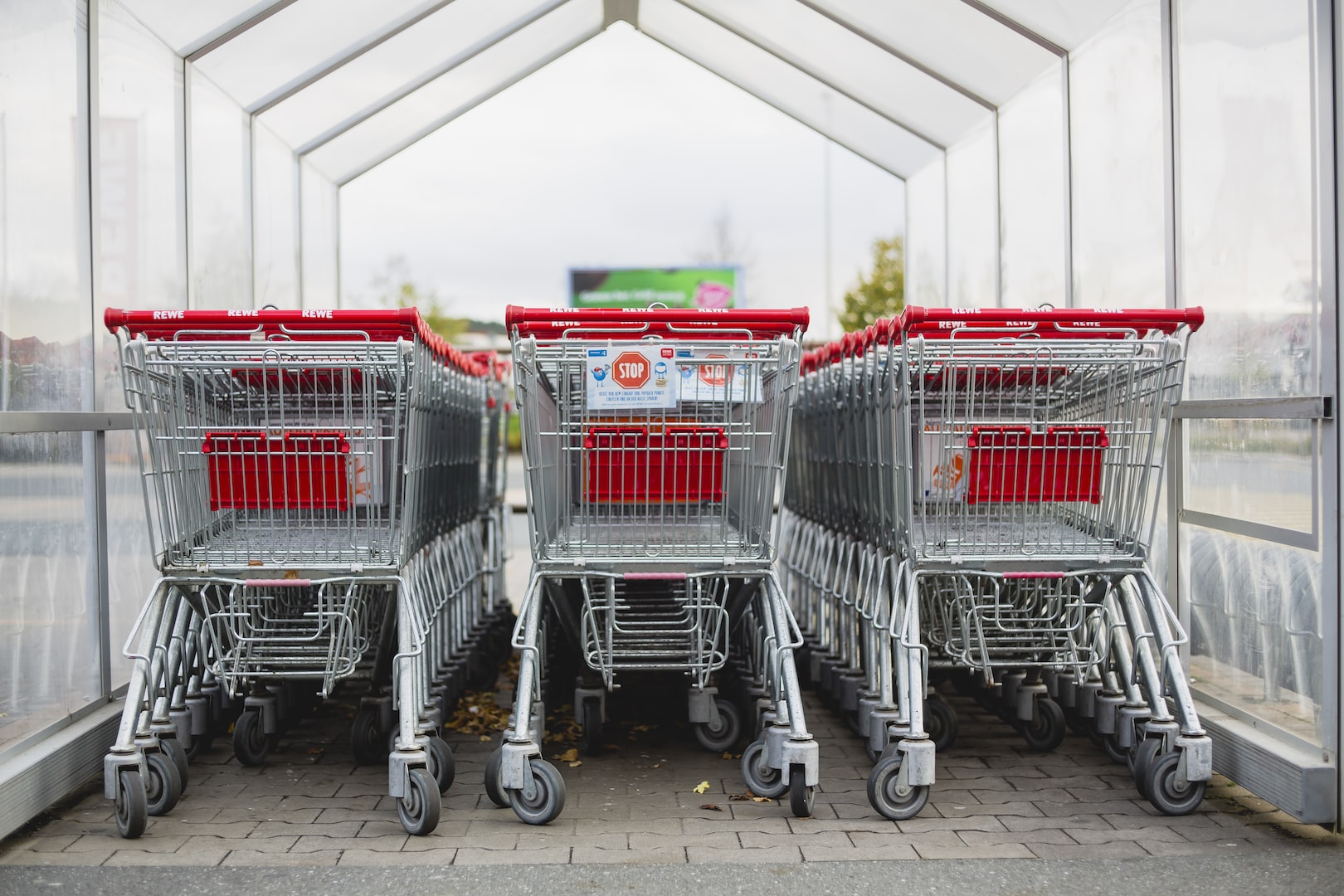Consumerism keeps the beat of our modern society, the pulse of the
American Dream. It drives us forward, sparks innovation and fuels
progress. In the endless pursuit of material goods, we are constantly
searching for something new, something better, something that brings
us closer to happiness. This endless desire keeps us striving,
pushing us to be better, to create and to achieve. But it’s not
just about the things we buy. Consumerism has a civilizing effect on
us, shaping our attitudes and behaviours, giving us reason to be more
responsible, more considerate and more cautious in our dealings with
others.
The dark side of consumerism, but the very side that works to keep us
civilized, is rooted in its ability to distract us from the problems
and troubles of the real world. We are constantly bombarded with
images and messages that encourage us to focus on our material
desires, rather than the larger issues that face our society. As we
focus on acquiring more things, we become increasingly detached from
the world around us. We become consumed by our own wants and needs,
and we begin to ignore the suffering of others. This detachment can sometimes lead to a lack of empathy and an utter disregard for the welfare of
others, however, it also keeps us reluctant to engage in extremist
behaviour.
Moreover, the focus on consumerism creates an endless cycle of
desire, where we are never truly satisfied with what we have. We are
always in pursuit of the next thing, the next upgrade, the next
fashion trend. This leads to a constant state of wanting and it can
be difficult to break free from this cycle. On the other side, it
keeps us motivated and eager to maintain the status quo which allows
us to acquire more.
In this way, consumerism keeps us distracted from the real world
problems and troubles, such as poverty, war and inequality. But, it keeps us working to maintain the world order that allows us to continue obtaining and achieving even more.
Having Something To Lose
Few things are more dangerous than a man with nothing to lose.
Next to family, consumerism remains a powerful force for good,
fueling our creativity and ambition, shaping our attitudes and values
and pushing us to be better, more responsible and more careful people
by giving us something to lose.
When people have invested their time and money into acquiring
material goods, they are more likely to value and protect these
things and the social order that keeps them intact. This can
encourage people to act in more responsible and cautious ways, as they
are motivated to protect their investments, their homes and their
possessions.
In addition, consumerism compels us to be more considerate of
others, as we strive to maintain our status and reputation. For
example, people may be more likely to behave politely and
courteously, to follow traffic laws, or to engage in other activities
that help to maintain social order and stability—all in the hope of
keeping together and maintaining the order that allows them to keep
their material possessions and wealth.
As inflation soars and possessions become more expensive, consumerism
becomes a more difficult pursuit. With the breakdown of consumerism
and affordability comes the slow breakdown of society.
The Social Breakdown
The rising cost of living has had a significant impact on the
well-being of many individuals and communities. With the cost of
essential items such as housing, food, and healthcare continuing to
increase, people are finding it more difficult to make ends meet. As
a result, they are forced to cut back on non-essential items,
including entertainment and leisure activities. This reduction in
discretionary spending has far-reaching effects on society, including
increased social unrest, crime, and violence.
One of the most noticeable consequences of the rising cost of living
is the decrease in the standard of living for many individuals and
families. For example, a recent survey showed that nearly half of all
American households are living paycheck to paycheck and are unable to
save for their future. This means that families are unable to afford
basic necessities such as proper nutrition, clothing, and healthcare.
In turn, this leads to increased stress and tension within
households, which can result in domestic violence and other forms of
social unrest.
Another direct result of the high cost of living is the increase in
crime and violence in communities. When people are unable to afford
the things they need to survive, they may resort to criminal activity
in order to make ends meet. This can include theft, robbery, and
other forms of property crime, as well as violent crimes such as
assault and battery. The stress and tension caused by financial
insecurity can also lead to an increase in drug and alcohol abuse,
which can further contribute to crime and violence in communities.
For example, rural areas in Canada have seen a rise in property
crimes and theft in recent years, as individuals become more
desperate to obtain the things they need to survive. Urban areas in Canada have seen rising housing costs and income inequality lead to
increased levels of poverty and homelessness, which in turn have
contributed to an increase in crime.
The high cost of living also has indirect effects on social order, as
people become less able to participate in leisure activities and
cultural events. This can result in a sense of isolation and
disconnection from society, as people are unable to connect with
others and engage in activities that bring them joy and fulfillment.
This can lead to increased feelings of hopelessness and desperation,
and can further exacerbate social unrest and violence in communities.
Rapidly rising costs of living are a major concern for individuals
and communities in Canada. With people struggling to afford basic
necessities, they are forced to cut back on non-essential items,
which has far-reaching consequences for society. The high cost of
living has already led to increased social unrest, crime, and
violence, as well as a decrease in the standard of living for many
individuals and families.
Consumerism And Civility
As frustrating as it all may seem, it is important to acknowledge the
value of consumerism in keeping society and the social order intact.
Consumer spending drives economic growth and helps to create jobs,
which in turn supports communities and contributes to a sense of
stability and security. By purchasing goods and services, individuals
are able to meet their basic needs and improve their quality of life,
which can lead to increased happiness and well-being.
Moreover, consumerism plays a crucial role in shaping the cultural
identity of society. The products we buy and the brands we support
reflect our values and beliefs, and help to define us as individuals
and communities. By participating in consumer culture, we are able to
connect with others and express our individuality, which can promote
social cohesion and a sense of belonging.
There is a strong correlation between weaker economies and less
consumerism and increased levels of civil unrest in many countries
around the world. Countries with high levels of poverty, income
inequality, and unemployment are often characterized by low levels of
consumer spending and a lack of economic growth, which can contribute
to social instability and increased levels of civil unrest.
For example, countries in the Middle East and North Africa, such as
Syria, Iraq, and Egypt, have experienced significant economic
challenges in recent years, including high levels of poverty,
unemployment, and inflation. These conditions have contributed to
increased levels of civil unrest and political instability, as people
take to the streets to demand change and better living conditions.
In South America, countries such as Venezuela, Peru and Brazil have also experienced high levels of poverty and economic
instability, which have contributed to increased levels of crime and
social unrest. In many of these countries, people are struggling to
afford basic necessities, and are unable to participate in consumer
culture, or to engage in leisure activities due to financial
constraints.
There is clear evidence to suggest that countries with weaker
economies and less consumerism are more likely to experience
increased levels of civil unrest. By supporting economic growth,
creating jobs, and fostering social connections, consumerism plays an
essential role in maintaining a stable and thriving society.










